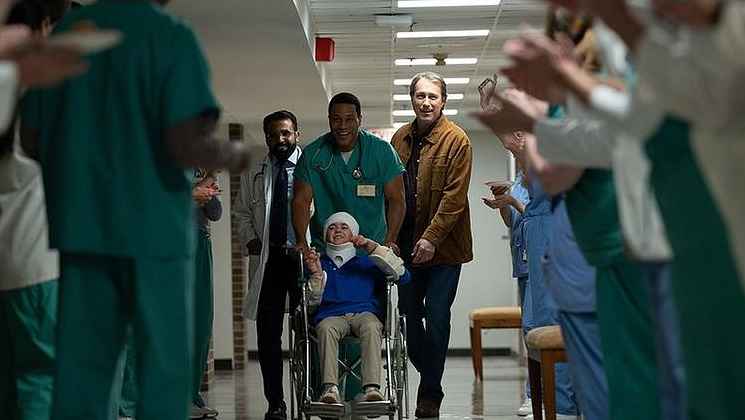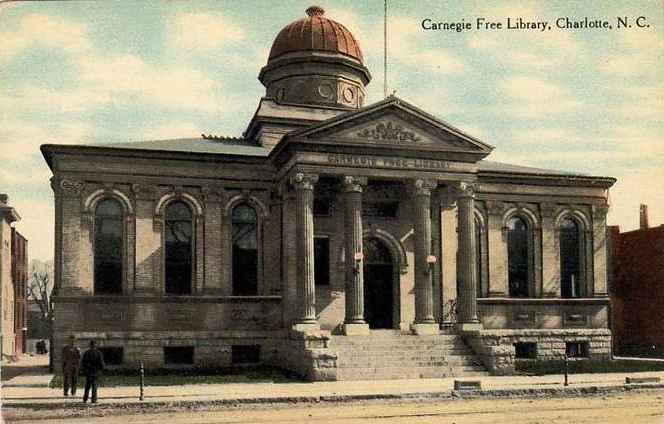





See listing of Recent and Most Popular articles on the Home Page
My World
Category: History / Topics: Beliefs • Personal Stories (Biography/Autobiography) • Books • Charity • Financial • History • Inspiration • Tribute, Testimony
Libraries and the Death Tax
by Arlene Weismantel / The Conversatiion
Posted: September 26, 2020
What hundreds of American public libraries owe to Andrew Carnegie's disdain for inherited wealth…
Editors Note: After posting an excerpt of Thomas Opping's "Your Brain on Reading," in which I mentioned the wonderful public library in our town, i ran across this article by Arlene Weismantel from The Conversation, orginally posted October 10, 2017. Most of us are aware of Andrew Carnegie's philanthropic support of public libraries, but perhaps, like me, you were not aware of some of Carnegie's motivations. Here is an excerpt of Weismantel's article, with a link to the full article, with additional photos, comments and links, at the bottom of the page.
One reason why the steel magnate spent much of his fortune building libraries is that he saw handing large fortunes to the next generation as a waste of money.

The Girard, Kansas Carnegie library. Photo from the National Park Service.
The same ethos that turned Andrew Carnegie into one of the biggest philanthropists of all time made him a fervent proponent of taxing big inheritances. As the steel magnate wrote in his seminal 1899 essay, The Gospel of Wealth:
“Of all forms of taxation this seems the wisest. By taxing estates heavily at death the State marks its condemnation of the selfish millionaire’s unworthy life.”
Carnegie argued that handing large fortunes to the next generation wasted money, as it was unlikely that descendants would match the exceptional abilities that had created the wealth into which they were born. He also surmised that dynasties harm heirs by robbing their lives of purpose and meaning.
He practiced what he preached and was still actively giving in 1911 after he had already given away 90 percent of his wealth to causes he cared passionately about, especially libraries. As a pioneer of the kind of large-scale American philanthropy now practiced by the likes of Bill Gates and George Soros, he espoused a philosophy that many of today’s billionaires who want to leave their mark through good works are still following.
A Modest Upbringing
The U.S. government had taxed estates for brief periods ever since the days of the Founders, but the modern estate tax took root only a few years before Carnegie died in 1919.
That was one reason why the great philanthropist counseled his fellow ultra-wealthy Americans to give as much of their money away as they could to good causes – including the one he revolutionized: public libraries. . .
Carnegie’s modest upbringing helped inspire his philanthropy, which left its mark on America’s cities large and small. After mechanization had put his father out of work, Carnegie’s family immigrated from Dunfermline, Scotland, to the U.S. in 1848, where they settled in Allegheny, Pennsylvania.
The move ended his formal education, which had begun when he was eight years old. Carnegie, then 13, went to work as a bobbin boy in a textile factory to help pay the family’s bills. He couldn’t afford to buy books and he had no way to borrow them in a country that would have 637 public libraries only half a century later.
In 1850, Carnegie, by then working as a messenger, learned that iron manufacturer Colonel James Anderson let working boys visit his 400-volume library on Saturdays. Among those books, “the windows were opened in the walls of my dungeon through which the light of knowledge streamed in,” Carnegie wrote, explaining how the experience both thrilled him and changed his life.
Books kept him and other boys “clear of low fellowship and bad habits,” Carnegie said later. He called that library the source of his largely informal education.
Carnegie eventually built a monument to honor Anderson. The inscription credits Anderson with founding free libraries in western Pennsylvania and opening “the precious treasures of knowledge and imagination through which youth may ascend.”
Supporting Communities
Carnegie believed in exercising discretion and care with charitable largess. People who became too dependent on handouts were unwilling to improve their lot in life and didn’t deserve them, in his opinion. Instead, he sought to “use wealth so as to be really beneficial to the community.”
For the industrial titan, that meant supporting the institutions that empower people to pull themselves up by their bootstraps like universities, hospitals and, above all, libraries.
In Carnegie’s view, “the main consideration should be to help those who will help themselves.” Free libraries were, in Carnegie’s opinion, among the best ways to lend a hand to anyone who deserved it.
Carnegie built 2,509 libraries in the late 19th and early 20th centuries, 1,679 of them across the U.S. in nearly every state. All told, he spent US$55 million of his wealth on libraries. Adjusted for inflation, that would top $1.3 billion today.
Some were grand but about 70 percent of these libraries served towns of less than 10,000 and cost less than $25,000 (at that time) to build.
A Lasting Legacy
Through Carnegie’s philanthropy, libraries became pillars of civic life and the nation’s educational system.
More than 770 of the original Carnegie libraries still function as public libraries today and others are landmarks housing museums or serving other public functions. More importantly, the notion that libraries should provide everyone with the opportunity to freely educate and improve themselves is widespread.
I believe that Carnegie would be impressed with how libraries have adapted to carry out his cherished mission of helping people rise by making computers available to those without them, hosting job fairs and offering resume assistance among other services. . .
Arlene Weismantel is Senior Associate Director of Libraries at Michigan State University.
Search all articles by Arlene Weismantel
Posted: September 26, 2020 Accessed 583 times
![]() Go to the list of most recent My World Articles
Go to the list of most recent My World Articles
![]() Search My World (You can expand the search to the entire site)
Search My World (You can expand the search to the entire site)
![]() Go to the list of Most Recent and Most Popular Articles across the site (Home Page)
Go to the list of Most Recent and Most Popular Articles across the site (Home Page)
 Loading requested view...
Loading requested view...